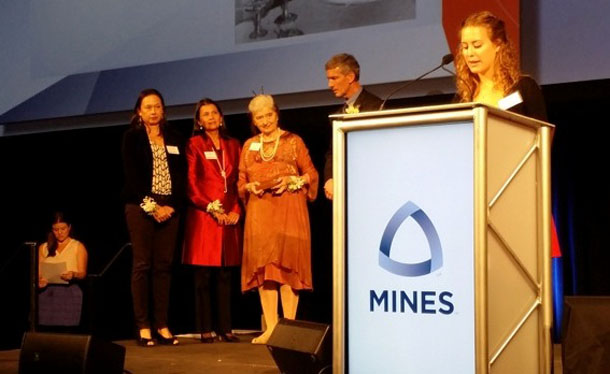“I was 16 or 17 then… We were all staying [in Taunggyi]… and that morning [of the coup], army officers showed up and called my father away for a ‘meeting’ with the local military commander,” recalled Hkun Htun Oo, the chairman of the Shan Nationalities League for Democracy (SNLD), the second biggest victor of the 1990 Elections, just behind the National League for Democracy (NLD).
Although over five decades had elapsed since General Ne Win seized power in a coup d’état, which would usher in almost five decades of brutal military rule in Burma, his memory of the day’s events remained clear. “They [the soldiers] did not explain any further but told him to bring his toothbrush, any regular medicines, and warm clothing, so it was clear that he was going to be detained.”
The knock on the door that morning for a ‘meeting’ heralded the start of a five year imprisonment in Insein Prison. Most other senior members of the ruling Shan royal families got similar invitations. His adoptive father was Sao Kya Zone; his father’s brother, Sao Kya Seng, was the Saophalong, or ruling prince of the Shan State of Hsipaw.
Hkun Htun Oo, reached down to roll up the leggings of his baggy Shan trousers, revealing extensive darkened, dry patches on the surface.
“My father was lucky to be in Insein. I was sent to Putao,” he said nonchalantly.
In 2005, as a result of his political activities, he had been arrested and sentenced in a closed trial in Insein Prison to 93 years imprisonment for “high treason,” served at Putao Prison in Kachin State. The extreme cold, coupled with medical neglect of his diabetes, gout, heart disease and arthritis, resulted in longstanding circulatory problems and the resultant scars on his legs.
His uncle, Sao Kya Seng, fared worse.
“I was about to leave for school and warned my uncle to be careful, I suspected a coup. After the car dropped me off at school, he took the same car to Heho. Along the way, he was detained and taken away to the Eastern Command.”
Sao Kya Seng was last seen being taken into custody at an army checkpoint near Taunggyi.
This history would have been forgotten, yet another tragedy among a litany of abuses against ethnic peoples committed by successive Burmese military regimes, if not for the recollections of those who had lived under such, including Sao Kya Seng’s widow, Inge Sargent. Although now retired and living in Colorado, she published “Twilight Over Burma: My Life as a Shan Princess” in 1994 to preserve the memory of her husband, and the abuses for which the Tatmadaw—the Burmese name for the country’s armed forces—has never been held to account. The book has also been adapted into a film, with a German premiere planned for October 26, 2015, followed by an international debut.
Nee Inge Eberhard, an Austrian student, had won a Fulbright Scholarship to study at a women’s college in Colorado in 1951. There she met and fell in love with a young man from Burma studying at the Colorado School of Mines, and the couple married in 1953. It was only after the wedding, when they returned to his home, that Inge learned that she had married a Shan prince, later recalling that, “he wanted to be sure I loved him for who he was, not what he was.”
She was quickly accepted by her adopted family, learning the Shan language and customs and becoming Sao Thusandi, the Mahadevi (Celestial Princess) of Hsipaw. Her subjects preferred to address her as Sao Mae or royal mother.
Among the most progressive of the Shan royal families, the young couple used their newly acquired Western education and instituted land reforms to improve the livelihoods, health, and education of Hsipaw.
“The two of us were like a Little Peace Corps,” recalled Sao Mae. “He not only tried to reform the political system but worked for the economic improvement of all people living in the Shan States.”
Sao Kya Seng founded the Tai Mining Company soon after his return in 1953, aiming to tap into his state’s rich mineral deposits of lead, silver, salt, antimony, zinc, and gold to diversify its primarily agrarian economy and improve livelihoods. Ne Win’s coup and decades of military rule would bring these efforts to an abrupt halt and, for most Hsipaw residents, achieve the opposite.
“Unfortunately, the military coup occurred as the equipment was arriving from overseas,” noted his widow, who was initially placed under house arrest for two years before finally fleeing Burma in 1964.
Sao Kya Seng’s work was recognized by his alma mater on October 1, 2015, when the Distinguished Achievement Medal was posthumously conferred on him for his outstanding professional achievements, accepted by Sao Mae and their two daughters, Sao Mayari and Sao Kennari.
“All Shan people who believe in education will be proud of what the last Saopha of Hsipaw, Sao Kya Seng, was able to achieve in spite of the Burmese military and those Shans who conspired with them,” noted Inge in her acceptance speech.
Along with her daughters, the former Mahadevi of Hsipaw continues to write letters to the Burmese government, including the current Thein Sein administration, inquiring about Sao Kya Seng. The letters have always been ignored.
Although significant changes have unfolded in Burma since the reforms of the current administration, there are many in the government who would prefer that the past remain obscure.
Hkun Tun Oo was released in January 2012 under a presidential amnesty and his political party is officially registered to contest the November 8th elections.
“[Despite the abuses] I have no remorse,” he defiantly declared, as he rolled down his pants to hide the scars.

















